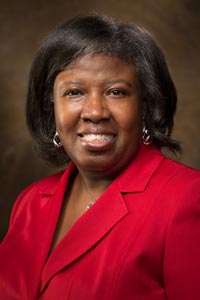Members, Dr. Claretha Hughes, a colleague of Judith Tavano's at the University of Arkansas, is doing research on her theory of Diversity Intelligence. She has a survey instrument (approved by Research and Sponsored Programs at the U of A) that she uses to collect information to support her research. She has asked if it might be possible to survey our membership. Her theory is explained here:
Diversity Intelligence (DQ) is relevant to leadership functionality and success through people. DQ is the capability of individuals to recognize the value of workplace diversity and to use this information to guide thinking and behavior. DQ requires leaders to exhibit the knowledge to understand protected class employees and the legal mandates and executive orders established to protect these employees from discriminatory practices at work. … For the American economy to significantly improve, corporate leaders must harness human resources more efficiently by utilizing the talent of all employees. To do so, managers need to possess DQ. DQ arms them with the skill to not just understand emotional, cultural and intellectual difference, but equip them to integrate people with different skills level and cultural background to contribute at an optimum level toward meeting corporate goals (Hughes and Liang, 2018).
Here is a link to the survey.
Dr. Hughes Bio
 Dr. Claretha Hughes, Professor, Human Resource and Workforce Development received her PhD from Virginia Tech. She also holds an MBA from the Sam M. Walton College of Business at the University of Arkansas, a Master of Textile Technology Management from NC State University, and a BA in Chemistry from Clemson University. Dr. Hughes has over 27 years of experience in business and industry and higher education. She is a certified Master Trainer.
Dr. Claretha Hughes, Professor, Human Resource and Workforce Development received her PhD from Virginia Tech. She also holds an MBA from the Sam M. Walton College of Business at the University of Arkansas, a Master of Textile Technology Management from NC State University, and a BA in Chemistry from Clemson University. Dr. Hughes has over 27 years of experience in business and industry and higher education. She is a certified Master Trainer.
Her research focuses on value creation through the use of human resource development and technology development. She is interested in the impact of values (a) on teaching and learning processes and motivation; (b) on organizational culture, change strategies, and leadership; and (c) on technology in the workplace environment and employee behavior.
Since arriving at the University of Arkansas in 2004, she has authored 25 journal articles, 8 books and currently has 2 book contracts, 17 book chapters, and 27 refereed conference proceedings. In 2012 she received the R. Wayne Pace Book of the Year Award for her book Valuing People and Technology in the Workplace. She is the 2009 University Council of Workforce and Human Resource Education Outstanding Assistant Professor. She has won the College of Education and Health Profession's Significant Research Award. She has also won the 2016 and 2017 Department of RHRC Outstanding Researcher Award.
Take the survey.
